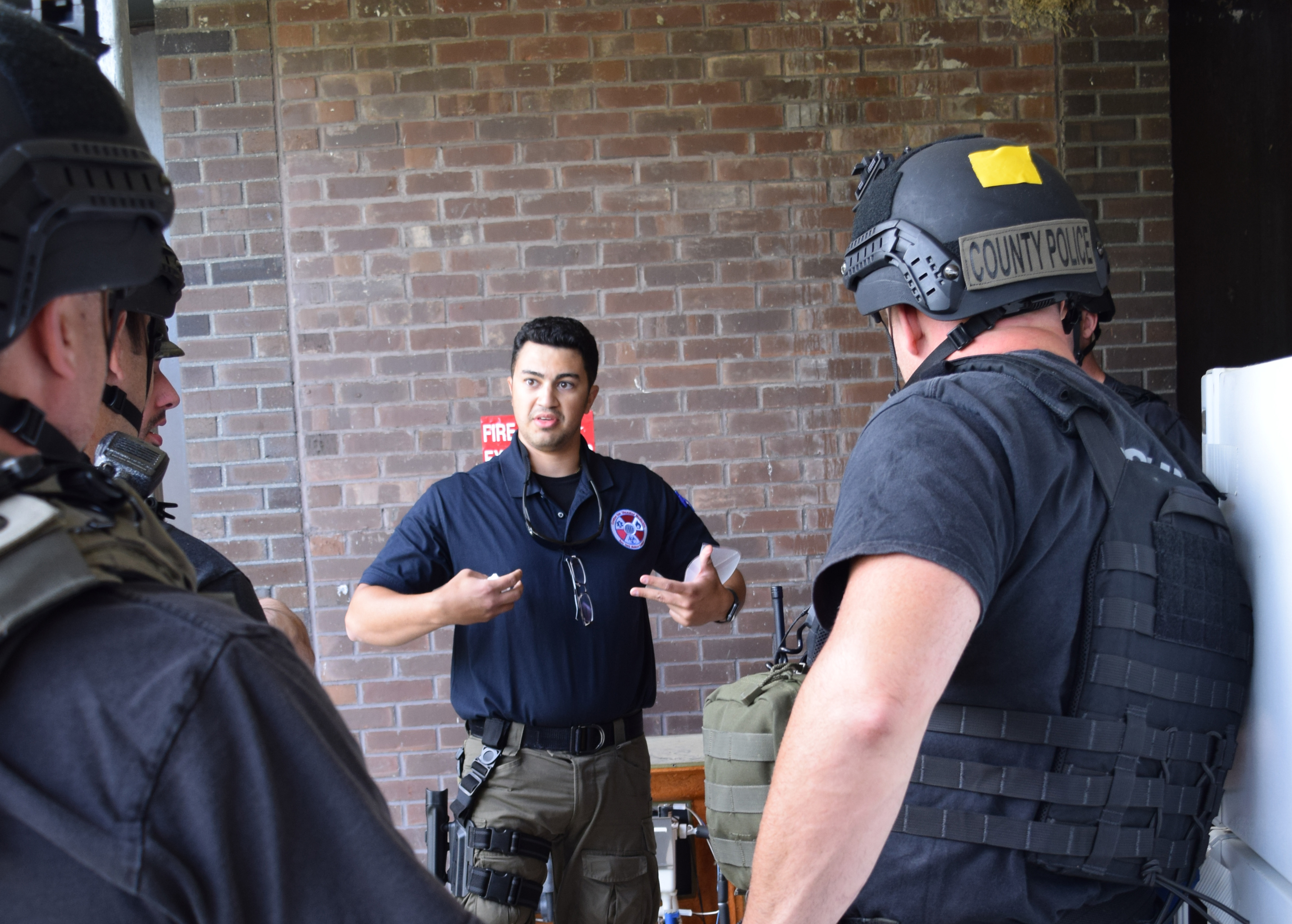
CDM Secures Grants to Expand Critical Emergency Training Programs
Awards Will Support Emergency Preparedness and Response Training for School Districts and Rescue Task Force Training for First Responders and Law Enforcement

The Center for Disaster Medicine (CDM) recently received two awards that will bolster emergency preparedness across New York State and underscore the CDM’s commitment to provide essential training, technical assistance, and educational activities related to emergency preparedness for disasters, terrorism, and public health emergencies. The latest comes in the form of a $250,000 award from the New York State Senate for voluntary training for school districts in emergency preparedness and response and a $100,000 one-year contract renewable for up to five years from Dutchess County to provide Tactical Emergency Casualty Care (TECC) training to members of the County’s Rescue Task Force.
“We are grateful for the funding and eagerly anticipate these new opportunities to deliver disaster medicine preparedness training. These initiatives will enhance public safety, improve public health outcomes, and have the potential to make a substantial impact on a broad audience,” remarked David Markenson, M.D., M.B.A., director of the CDM and senior associate dean for research, who serves as the principal investigator for the awards.
The funding provided by the New York State Senate comes on the heels of the pilot program that the CDM conducted for the City of Yonkers School District to provide education and training to more than 3,900 school professionals, students, parents, and community members. Members of the Senate including Senate Majority Leader Andrea Stewart-Cousins and Senator Shelley Mayer, chair of the Senate Education Committee, saw first-hand the value these trainings provided to Yonkers and championed efforts to provide funding in the 2024-25 state budget to expand these trainings to other areas of the state. The new trainings, a combination of in-person and virtual presentations and activities over a one-year period, will be provided schools that voluntarily opt in to the program. The educational plan will be tailored to each school districts’ needs and capabilities.
The school training will cover a combination of topics including Stop the Bleed, naloxone to combat the opioid epidemic preparedness for public health emergencies, disaster, and terrorism; mental health emergency recognition, de-escalation, and intervention; incident command training and personal preparedness; as well as instructor training in CPR, and firstaid. Moreover, the program aims to ensure sustainability and expansion by training teachers and students as instructors.
State Senator Shelley B. Mayer said, “I am proud to help secure $250,000 in state funding, with the leadership and support of Majority Leader Andrea Stewart-Cousins, for the CDM to expand their innovative emergency preparedness training programs for school communities. I am pleased Yonkers Public Schools was home to the pilot program, where nearly 4,000 individuals were trained. During this pilot program, I saw firsthand the value of this training and am thrilled the CDM will be able to expand its programming to additional districts. The more people that are trained, the safer our schools and our communities will be. I thank the CDM for their work and Majority Leader Stewart-Cousins for ensuring this was included in the New York State Budget.”
“The grant from the NYS Senate represents a critical step in our mission to empower school districts with the tools they need to help safeguard students,” said Dr. Markenson. “We believe this training will instill confidence in parents that their schools are well-prepared to protect their children.”
The contract from Dutchess County will be used to conduct training for first responders, fire service and law enforcement in Rescue Task Force operations, including immediate medical care and extraction injured individuals from dangerous environments as quickly and safely as possible. This training includes both the TECC program and the CDM developed Rescue Task Force™ and Cold Zone Operations™ courses and includes rescue task force basics, hot, warm, and cold zone operations, active shooter/hostile event response scenarios, patient simulations, and a variety of first aid and life-saving skills and techniques. The program will be conducted by the CDM’s Division of Operational and Tactical Medicine that focuses on researching and teaching the best practices for delivering high-quality, high-impact care in environments outside the realm of traditional medicine.
“We are confident our Rescue Task Force trainings will give first responders, fire service, and law enforcement the tools and confidence they need in such situations and potentially decrease preventable deaths,” said Dr. Markenson.
Both programs highlight the CDM’s efforts to advance disaster, operational and tactical medicine preparedness and response capabilities throughout the region, helping communities remain resilient in the face of emergencies.

